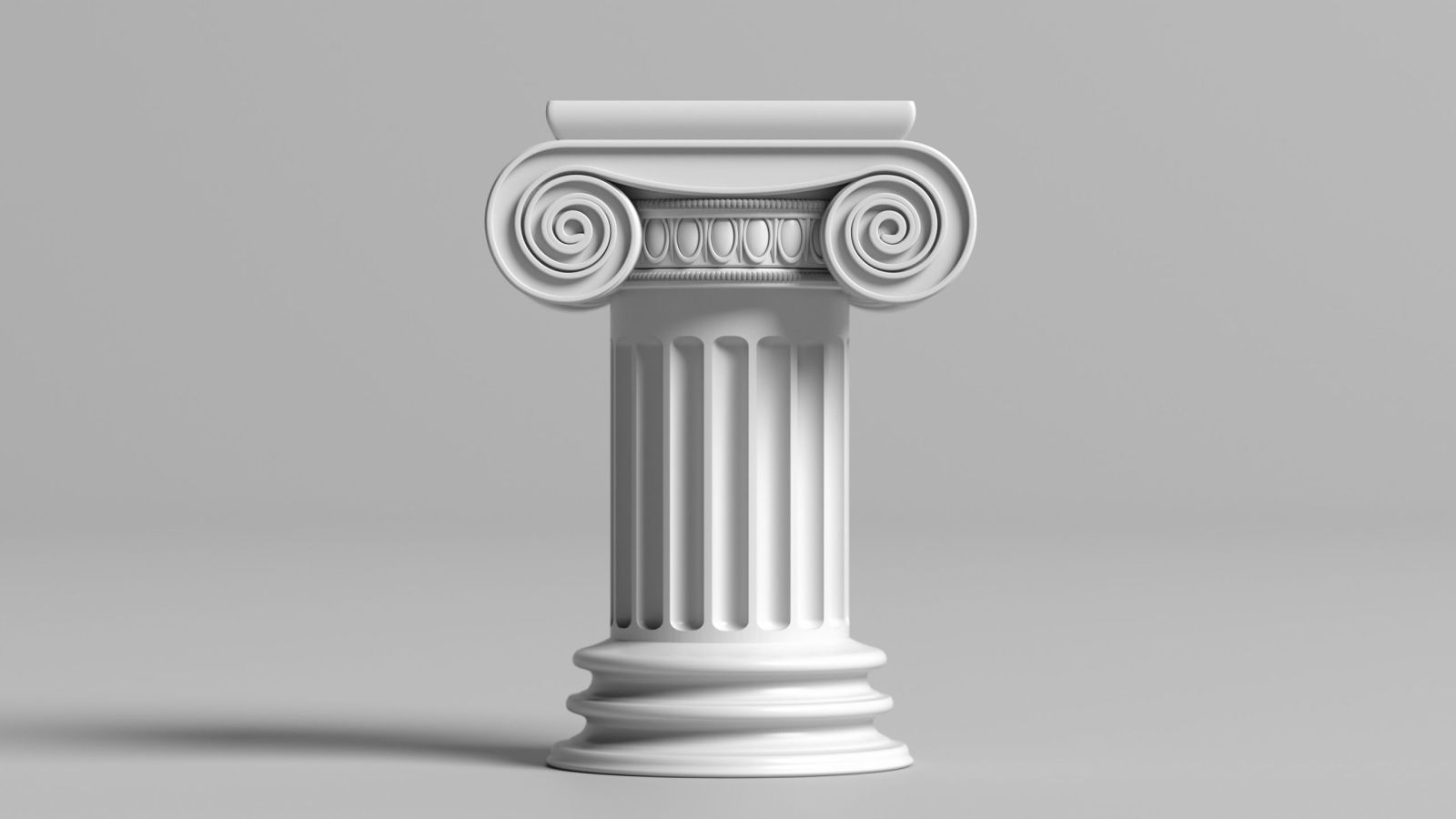The Fundamental Principles of the Sunnah
Imām Abū Bakr al-Humaydī


A statement is not beneficial except with an action, and neither is an action or statement beneficial, except with an intention, and neither is an action, statement, or intention beneficial, except with the Sunnah.
An Introduction to the Author
He is the Ḥāfiẓ, the Imām, the Faqīh, Abū Bakr ʿAbdullāh Ibn Zubayr Ibn ’ʿĪsá al-Qurashee al-Asdee al-Ḥumaydī.
He learned from many scholars, from them: Wakīʿ Ibn al-Jarrāḥ, al-Walīd Ibn Muslim, Ya’lā Ibn ’ʿUbayd, and Marwaan al-Fazaaree. He also learned much from Sufyān Ibn ʿUyaynah, to the point where al-Shāfiʿī said: ‘He memorised ten thousand ḥadīths from Sufyān Ibn ‘Uyaynah.’
Abū Ḥātim al-Rāzī said: ‘The people are in agreement about Sufyān Ibn ʿUyaynah, and he is from the companions of Sufyān Ibn ʿUyaynah, and he is reliable (thiqah) and a scholar.’
Aḥmad Ibn Ḥanbal, Ishāq Ibn Rāhawayh, and al-Bukhārī testified to his scholarship, and he was from the most distinguished companions of al-Shāfiʿī in Makkah. Many people received knowledge from him, from them: al-Bukhārī who used him as an authoritative source in his Ṣaḥīḥ, and he is the first man in his book. Imām al-Bukhārī related from him the ḥadīth, “Verily actions are by intentions…”
The two Rāzīs: Abū Zur’ah, and Abū Ḥātim also related from him, and Muḥammad Ibn Yahyá adh-Dhuhalee, and Yazīd Ibn Sufyān, and Bishr Ibn Mūsá al-Asdee narrated his musnad from him. He died in the year 218H. May Allāh have Mercy upon him. 2
The Authentcicity of this Treatise
Imām al-Ḥumaydī supplemented his musnad with this treatise, which was published in the year 1963C.E., with the checking of Shaykh Habeebur-Raḥmān al-A’dthamee. Indeed, I authenticated this work from the preserved hand-written manuscript of al-Musnad, from the preserved texts in Daarul-Kutubudh-Dhaahiriyyah in Damascus, and it is found under no. (ḥadīth- 541). The manuscript was collected in the year 681H
Attributing the Treatise to it’s Author
This treatise is authenticated from the writer, just as his musnad is. It is authentic according to the people of ḥadīth, with sufficient proof. The imāms of the Salaf met it with approval, and it is authentically mentioned in the writings concerning the creed of the Salaf. So from that is:
1. It was mentioned by the Imām, the accomadator of the Religion, Ibn Qudāmah in Dhammut-Ta‘weel point (no. 39), with a chain of narrators from Abī ʿAlī as-Sawwaaf – a narrator of the musnad – from Bishr Ibn Mūsá, from al-Ḥumaydī who said: “The principles of the Sunnah are…so he mentioned some things, and then he said:…and whatever is spoken about in the Qurʾān…” So he mentioned what will follow in points (no. 8-9).
2. Shaykh al-Islām Ibn Taymīyyah mentioned it when he said in Majmūʿ al-Fatāwá (4/6): “And it is established from al-Ḥumaydī, ʿAlī Ibn Bishr, ʿAbdullāh Ibn Zubayr, that he said: “The principles of the Sunnahare…” so he mentioned some things.” So he agreed with what Ibn Qudāmah mentioned.
3. Likewise, the text itself from this treatise is quoted from al-Imām Ibn al-Qayyim in Ijtimaa’ul-Juyooshil-Islāmee (p. 86).
4. It is also mentioned by al-Ḥāfiẓ al-Dhahabī in: Tadhkiratul-Huffaadh (2/44) with a chain of narrators from Ibn Qudāmah as has preceded. al-’Uloow (p. 133), as what is before it.
5. Al-Arba’een fī Sifaati Rabbil-’Ālamīn (no. 75). He quotes the conclusion of al-Musnad.
The Name of the Treatise
It is mentioned in the beginning after the conclusion of the musnad with the following name: Uṣūl-Sunnah then ‘Bishr Ibn Mūsá informed us from al-Ḥumaydī…’ So the name of the treatise is established.
The Text
Bishr Ibn Mūsá related to us that al-Ḥumaydī said:
1. The Sunnah is that a man believes in Pre-Decree, the good of it, and the evil of it, and the sweetness of it, and the bitterness of it. and that he knows what has afflicted him was not going to avoid him and what has avoided him was not going to afflict him and that this – all of it – is pre-ordained from Allāh. 3
2. Īmān (faith) is a statement and action, it increases and decreases. A statement is not beneficial except with an action, and neither is an action or statement beneficial, except with an intention, and neither is an action, statement, or intention beneficial, except with the Sunnah.
3. To pray for forgiveness upon all of the Companions of Muḥammad (ṣallallāhu ʿalayhi wa-sallam). So verily Allāh the Mighty and Majestic says:
“And those who came after them saying: Our Lord, forgive us and our brothers who preceded us in faith.”
[Sūrah al-Ḥashr 59:10]
So do not enjoin 4 except with forgiveness for them. So whoever reviles them, or finds fault in them, or in one of them, then he is not upon the Sunnah, and he does not have any right to the booty. 5 It was reported to us about Mālik from more than one person that he said: ‘Allāh the Exalted divided up the booty when he said:
“For the poor emigrants who were expelled from their homes.”
[Sūrah al-Ḥashr 59:8]
He said: “And those who came after them saying: Our Lord, forgive us…” to the end of the āyah. So (whosoever) 6 does not say this about them, then there is no booty for him.’
4. The Qurʾān is the Word of Allāh. 7 I heard Sufyān saying: “The Qurʾānis the Word of Allāh, and whoever says that it is created, then he is an innovator. We have not heard anyone saying this.”
5. I heard Sufyān 8 saying: “Faith (īmān) is knowledge and action, it increases and decreases.” So his brother Ibrāhīm Ibn ʿUyaynah said to him: ‘Do not say that it decreases.’ So he became angry and said: “Be silent you child, until nothing like this remains!”
6. The affirmation of the ru‘yah 9 after death.
7. Whatever the Qurʾān and ḥadīths speak about, like “And the Jews say the Hand of Allāh is fettered. May their hands be fettered.” 10 Likewise, “And the Heavens shall be rolled up in His Right Hand.” 11 Whatever resembles this from the Qurʾān and ḥadīths, we do not increase in them, and we do not explain them away.
8. We say: “al-Raḥmān (The Most Merciful) has ascended above the Throne…” 12 Whoever alleges other than this, then he is a lying Jahmee!
9. We do not say as the Khawārij say: ‘Whoever commits a major sin, then he has indeed disbelieved.’
10. We do not declare a person to be a disbeliever due to something of sins, disbelief is only for the one who abandons the five 13, about which the Messenger of Allāh (ṣallallāhu ʿalayhi wa-sallam) said: “Islām is built upon five: testifying that none has the right to be worshipped, except Allāh, and that Muḥammad is the Messenger of Allāh, and the establishment of prayer, and giving charity (zakāt), and fasting in the month of Ramaḍān, and pilgrimage to the House.” 14
So as for three from them, then there is no difference concerning the one who abandons them: Whoever does not testify to the two testimonies, and does not pray, and does not fast, even though there is nothing to delay from him from its time. There is no punishment for the one who makes it up after his intentional negligence in it from its time. So as for charity (zakāt), then when does not offer it, being content with it – then he is a sinner for holding it back.
So as for Pilgrimage (ḥajj), then it becomes obligatory upon him if the means for him is present. It is not generally obligatory upon him until he has no reason to avoid it. When he performs it, he becomes one of those who have performed it, and he is not a sinner for delaying it if he performs it, as he would be a sinner in charity. This is because charity is a right of the needy Muslims, if he holds it back from them, then he is a sinner until he gives it to them. So as for Pilgrimage, then it is between the servant and his Lord. If he performs it, then he has indeed performed it. If he dies and the affordability was present, yet he did not perform pilgrimage, he will ask to be returned to this world for Pilgrimage. 15 It is obligatory for his family to perform Pilgrimage for him, and it is obligatory upon the one who offers it for him to return it to him as if it were a debt upon him, so he recompenses him after his death.
Endnotes:
[1] This is a translation of the treatise Uṣūl-Sunnah by Imām al-Ḥumaydī, one of the teachers of Ameerul-Mu‘mineen fil-Ḥadīth, Muḥammad Ibn Ismāʿīl al-Bukhārī. We have taken it from al-Mujallatul-Hikmah (no. 1). The checking is by Abū Muḥammad ʿAbdullāh Ibn Yūsuf al-Juday’ who is probably best known for his recent work, al-’ʿAqīdahtus-Salafīyyah fī Kʿalámi Rabbil Barriyah. All endnotes are by the checker unless otherwise stated.
[2] See his biographies in Tahdhīb al-Kamāl of al-Mizzī (14/512), and in Siyar Aʿlām al-Nubʿalāʾ of al-Dhahabī (10/616).
[3] This is affirmed by the ḥadīth of Sufyān in Ṣaḥīḥ Muslim (no. 2999), where he said: The Messenger of Allāh (ṣallallāhu ʿalayhi wa-sallam) said: “How remarkable is the affair of the believer! Verily all of his affair is good, and none is like that except the believer. If a good thing befalls him, he is thankful, so it becomes good for him. If an evil affliction befalls him, he is patient, so it becomes good for him.”
[4] In the original, the word is ‘believe’. This is because of misplacement of the diacritical marks as al-A’dthamee points out in his checking.
[5] This is authentically reported from Mālik, and al-Lālikaa‘ee reported it in his al-Sunnah (no. 2400) by way of Ma’een Ibn ’ʿĪsá who said: ‘I heard Mālik Ibn Anas saying: “Whoever reviles the Companions of the Messenger of Allāh (ṣallallāhu ʿalayhi wa-sallam), then he does not have a right to the booty. Allāh the Mighty and Majestic says: “For the poor emigrants who were expelled from their homes and their properties, seeking bounties from Allāh and His Approval.” To the end of the verse. These were the Companions of the Messenger of Allāh (ṣallallāhu ʿalayhi wa-sallam) who migrated with him. Then He said: “And those who were settled in their homes and adopted faith.”, these were the Ansār (helpers). Then He said: “And those who came after them saying: Our Lord, forgive us and our brothers who preceded us in faith.” So the booty is for these three. So whoever reviles the Companions of the Messenger of Allāh (ṣallallāhu ʿalayhi wa-sallam), then he is not from these three, and he does not have a right to the booty.’” I say, its chain of narrators is authentic. Shaykh al-Islām Ibn Taymīyyah said, “This is known from Mālik, and other than Mālik from the people of knowledge such as, Abū ’ʿUbayd Qaasim Ibn Sallām.” Refer to Minḥājus-Sunnah (2/20). I say, it is reported from Abū ’ʿUbayd by Abū Bakr al-Khallāl in his al-Sunnah(no. 792).
[6] This is an unavoidable addition from the published version.
[7] This is upon its real sense (ʿalá haqeeqatihi), with letters (huroof) and meanings. This is one of the matter in which the various groups from among the people of the Qiblah have differed. I have explained it in detail in my book, al-’ʿAqīdahtus Salafīyyah fī Kʿalámi Rabbil Bariyyah, so the reader may refer to it.
[8] He is Sufyān Ibn ʿUyaynah.
[9] That is the believers’ seeing their Lord the Blessed and Exalted, and the narrations concerning this aspect of belief are recurrent and authentic. They have been collected by many scholars, such as al-Ājurrī, and Ibn al-A’rabi, and al-Dāraqutnī, and other than him.
[10] Sūrah al-Māʾidah [5:64].
[11] Sūrah al-Zumar [39:67].
[12] Sūrah Ṭā Hā [20:5].
[13] There is no difference amongst the people of knowledge regarding the disbelief of the one who abandons the two testimonies, likewise, there is no difference between them concerning the disbelief of the one who denies the obligation of one of the other pillars, if the proof has been established upon him. Rather, there is a difference amongst the schools of law (madhāhib) concerning the abandonment of these four in action. Refer to al-Īmān (p. 245, 287, 354), and Majmūʿ al-Fatāwá (7/600-616).
[14] Translators Note: This ḥadīth was reported by Ibn ʿUmar. It was related by Aḥmad, al-Bukhārī, Muslim, at-Tirmidthī, and Nisāʾ‘ee. Shaykh Muḥammad Nāṣir al-Dīn al-Albānī declared it authentic, refer to Ṣaḥīḥ al-Jāmiʿ (no. 2840), ar-Rawd (no. 270), and al-Irwá‘ul Ghaleel (no. 781).
[15] This meaning is related as a ḥadīth that is not. It is reported by ’Abd Ibn Humayd (no. 693), and by at-Tirmidthī in his Jāmiʿ (no. 3313), and Ibn Jarīr in his Tafsīr (28/118), and at-Ṭabarānī in al-Kabīr (12/114-115), and Ibn ’Adee in al-Kamaal (7/2670), by way of Abī Jinaab al-Kalabee, from adh-Dhihaab Ibn Mazaahim, from Ibn ʿAbbās who said: “Whoever has wealth should go for Pilgrimage, or if he has wealth, charity is obligatory upon him. So if he did not give charity, he will ask to be returned from death.” They said: ‘O Ibn ʿAbbās, we thought this was a disbeliever.’ He said: “I shall read to you from that Qurʾān”, then he read: “O you who believe, do not be distracted by your wealth, nor by your children, from the remembrance of Allāh.”, until he read: “So give charity, and be from amongst the righteous.” This refers to the man.” I say, its chain of narrators is weak due to three defects: Firstly, this Abū Jinaab – and he is Yahyá Ibn Abī Ḥamzah – is weak in ḥadīth, nor strong, and he was notorious for tadlees (concealment). Secondly, ad-Dahhaak never heard from Ibn ʿAbbās. Thirdly, there is a difference as to whether Ibn Jināb related this narration as marfūʿ’ (elevated), or mawqūf (stopped). So al-Thawrī, and ʿUmar Ibn ’Adee report it from him as marfūʿ’, whereas Ja’far Ibn ’Awn – as at-Tirmidthī reports (no. 3313) – and Sufyān Ibn ʿUyaynah report it from him as mawqūf. I say that if these three defects are proven, then the tadlees of Abī Jināb completes a fourth.
Checking by ʿAbdullāh Ibn Yūsuf al-Juday’, translated by Maaz Qureshi [1]
Most Popular: Last 30 Days

















